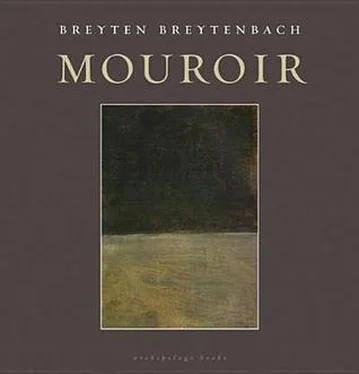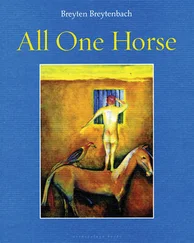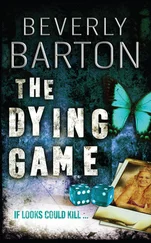Breyten Breytenbach
Mouroir
All we are is the result of what we thought.
BUDDHA, The Dhammapada
Every individual does penance for [his] separation
from the boundless. .
ANAXIMANDER
Song of the Masters
if you put the lion out to graze
he might well eat the tulip-bird
the sun will upear in a daze
and I be stuck for a rimy word
Caesar is born and I don care
Hitler is born and I don care
Nixon is born and I don care
all masters gong away
the buildings in their water rend
big bave soldiers bleed the turd
die evy day with doth to blend
an’ I shall ride the runny word
Stalin is die and I mot scare
Franco is die and I mot scare
Vorster is die and I mot scare
All deaftlife will be may
Japan has many reasons to be sad, and elephants are
almost unknown there, I don’t know why.
NEHRU
Now, in retrospect, it is difficult to remember exactly how or precisely when it happened. You should be like the elephant, the animal which can remember all its earlier lives in visions, which stands there contemplating without moving, and then chews the cud: grass, all grass. A life is the metamorphosis of the earlier one(s). A clever man has said — if civilizations can survive only through metamorphosis then the world consists of that which has been forgotten. (But another sly one objected that the living constitute the memory — event and thought — of the dead.) I’d love to see and to recognize a black elephant. Black he must be, but not rubbery. Rather more like silk. Silk that by candlelight has a silvery skin as if of frozen dew when day breaks over the dunes. And its eyes must be huge and dark, and mild, a concentration of the night, the night bumped; and with long eyelashes.
When we lived in Wellington, when I was only a pipsqueak as high as a lap, in the house by the railway tracks close to the station, but the embankment upon which the lines were laid — the beams and the shiny rods especially like protracted silver notes which ought, thus you thought, to vibrate into eternity — this embankment was higher than the house itself so that the trains were in heaven at night, there I was sitting one day on the edge of the small cement reservoir, the dam being in the yard under a tall bluegum tree and the shadow of the tree was as birds, no, more like finely notched wet stains on the earth and against the grey walls, petticoats of black lace stripped from the bodies there — you might have seen it in this way if it hadn’t been that the soil itself was already shiny and black from the coal-dust and the soot; I was holding something in my hand and turned it upside down so that a liquid at first squirted over the wall and then flowered. A long golden jet over the wall. The stream, the gold, a snake or a hose or an intestine or perhaps even more intimate — it remained suspended like that: thick and alive. I felt that it was something come forth from my own nebulosity and even so from outside myself. Something which may be my protection. If I could only pin it down! In a manner of speaking, of course. A godliness? A god? But it also left me thinner and more empty. Can that which exhausts you nevertheless take you under its wings? (Maybe this incident was not during the day; perhaps it was already towards nightfall “when you can see three stars at a glance”; the stars like the illuminated windows of a train, and the fair napkins, decanters of wine, silver cutlery. .)
A second time I saw that original house when I passed by there many years later, this time in a train with my wife, and I pointed it all out to her. The house was deserted and ordinary. (Against one wall the bleached signboard for “Joko Tea”.) How did the building, with the flip of a wrist, get to be so ugly? The wire gauze around the back porch was full of holes. So the flies at last obtained entry — by gnawing? Plunderers! (What we in our hurry see as shadows is in fact a liquid chucked out by the light, all the dirt which light hides behind objects in order the cleanse the eye. It is this wetness which is transformed into flies. Shadows are widows of the light. Death too is a widow.) All about the house the grass grew tall. The front, that side which looked away from the rail embankment over the marshes and further along the dark nick of Port Jacksons on the river banks — the river of a silver trunk, and slightly higher upstream to the left was a favourite bathing pool where brown water used to be dammed behind a floodgate for use by the distillery on the bank, the manager of the distillery was a small fellow with wrinkles, dark hair and a big voice and he had pretty daughters on bicycles, I remember N. Bok with the tits, the thighs twitching whitely under the shortish school skirt — that front of the house was built of wood, an enclosed veranda and a few rooms on either side, and the whole caboodle was rickety now, an old beast with the hindquarters a-drag, the wood most likely moldy and musty, greyish green from the years which are no longer there. There was still the cement dam in the anthracite back yard, empty now, a dusty glass eye. There also, look, was the bluegum tree full of dust — and without monkeys! (The then house was similarly under dust, and at times it moved from top to bottom, a war widow dreaming the hands of a lover, a servant believing ghost stories; and at regular intervals it used to be filled — pierced — by a fierce whistle as when my cousin Kowie the toothless driver came steaming by in his gleaming locomotive: a pig poked; waving of black neckerchief in white hand-palm and rosy shells of gums.) Also the row of plane trees running parallel to the tracks. Then, between the houses and the marshes, the enclosure where grazed the donkey bought for half a crown from the pound when we were small still. And, unexpectedly, a pomegranate bush, flowering crimson in the hedge around the enclosure. But the train flashed as fast as a photo past all this. Lickety-spit.
In that dilapidated section of the house, the wooden part, we sat down in crocked chairs and knobby armchairs. (This, the third occasion to broach the house.) My father, my mother, my wife, I. And the sieur Vlilv. The house is as seedy inside as, so long ago, it seemed to be from the outside. An underground network, a sunken graveyard, a slovenly aquarium full of dust, the lack behind a glass eye. In this room with the fusty wooden walls there are but a few pieces of furniture, grey eyes for windows, and a thick carpet of dust covers the glyphs and the horizontal planes. It’s stuffy. As if the house keeps captive a greyish light. We came here especially from the past for our appointment with the sieur Vlilv but he doesn’t live here either; the house is now occupied by brown prostitutes, night butterflies, and one of them used to be in our service, she worked in the kitchen, early mornings when light was still opaque like train smoke she brought tea and rusks. They allowed us to use their house for our rendezvous. We hear the grousing of the bed in the next room, of how there are many sighs and whispers and giggles, how someone (or two persons?) then jump(s) up with brusque movements, the irascible footsteps over a floor of a woman without underwear, the swish of a cotton dress over naked buttocks, and then a voice outside in the yard, sharp: “Home! Go home, you! Viola-a-a, he tricked me! Viola-a-a, dammit, I say he tricked me!” A train rumbles past, higher than the roof ridge and higher than the tip of the bluegum; the house quakes. My mother goes to fetch coffee in the kitchen where there’s a stove with a glowing red surface and she pours from the coffee pot’s spout a thick jet of steaming black coffee in a cup, but in one way or another the coffee reaches her hands and she exclaims her pain, hands in the air, the hand-palms like little red bootees for a baby. It’s been many years since cousin Kowie ended up under the wheels of a train engine.
Читать дальше












